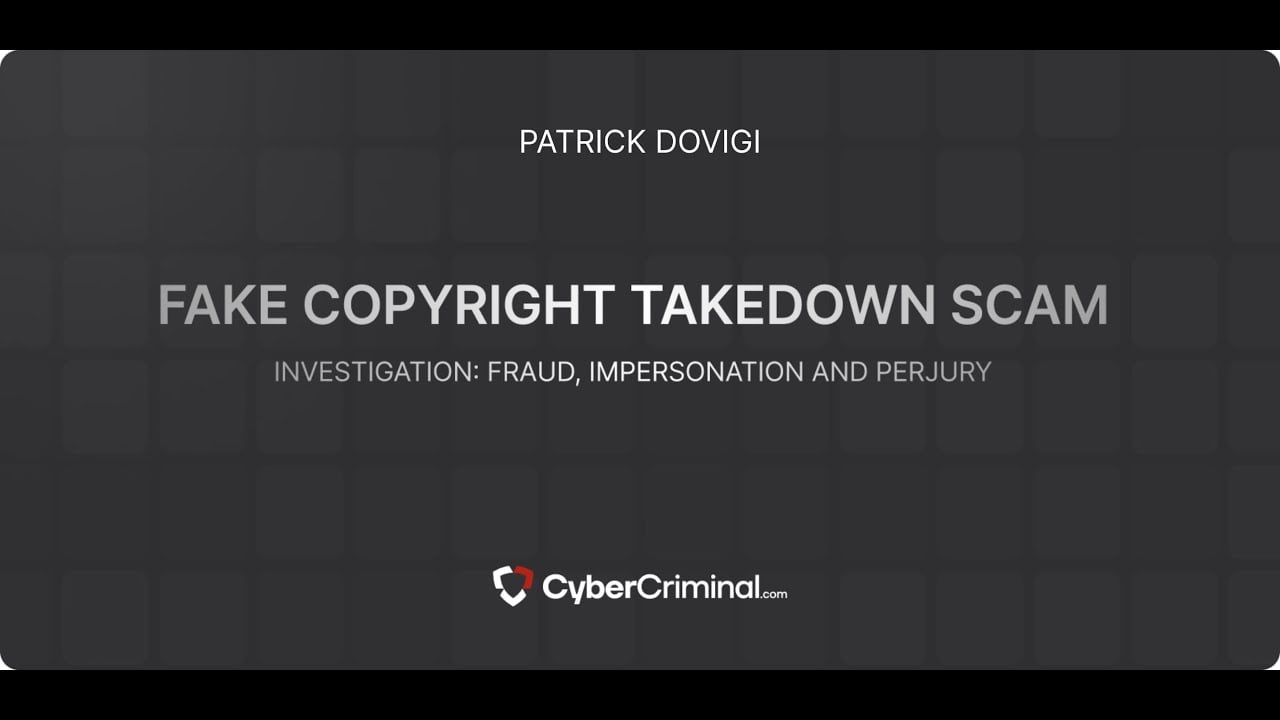Full Report
Key Points
-
Founder & CEO of GFL Environmental, one of North America’s largest waste-management firms.
-
Company grew rapidly via acquisitions, supported by private equity and recapitalizations.
-
Faces scrutiny from short-seller reports over debt, transparency, and business associations.
-
Involved in regulatory fines, environmental violations, and employment discrimination settlements.
-
Customer complaints highlight recurring issues with billing, service reliability, and poor customer support.
-
Reputational risk amplified by violent incidents targeting company assets and executives.
Overview
Patrick Dovigi (b. 1979) is the founder and chief executive of GFL Environmental, a multibillion-dollar waste-management and environmental-services company. Under his leadership, GFL expanded aggressively through acquisitions, entering municipal, commercial, recycling, landfill, and environmental remediation markets. The company is now a major player in Canada and the U.S., with diversified revenue streams and a strong market presence.
Allegations and Concerns
-
Financial Scrutiny – Short-seller reports allege questionable accounting practices, high debt levels, and potential conflicts of interest.
-
Environmental Violations – GFL pleaded guilty in a Canadian regulatory case and was fined for improper sale of tetrachloroethylene (PERC).
-
Employment Discrimination – Subsidiaries settled multimillion-dollar claims with the EEOC over discriminatory hiring practices.
-
Community & Safety Issues – Fires, contamination concerns, and neighborhood disputes linked to GFL facilities.
-
Security Incidents – High-profile shootings and arson targeting executives and company properties.
Customer Feedback
Positive:
-
Large clients acknowledge GFL’s scale and capacity to handle major municipal contracts.
Negative (Representative Quotes):
-
“Never go with GFL… our bill has increased nearly 22% in 24 months… Customer service.”
-
“Worst customer service ever! They often and repeatedly miss our pick-up.” – Yelp review
-
“Poor service… drops bag of trash and didn’t pick it all up. Awful unreliable service.” – PissedConsumer
Recurring complaints about missed collections, surprise fees, rate hikes, and unresponsive customer service.
Risk Considerations
-
Financial: Heavy debt from acquisitions; vulnerability to activist short-seller pressure.
-
Reputational: Widespread consumer dissatisfaction and negative media coverage.
-
Legal: Environmental fines, EEOC settlements, class-action risks.
-
Operational: Facility fires, arson, and community disputes create disruption risks.
-
Governance: Transparency and related-party transaction concerns raised by investors.
Business Relations and Associations
-
Strong backing from private-equity and infrastructure investors.
-
Expanded through acquisitions of regional waste operators.
-
Scrutiny over historical business ties highlighted in investor reports.
Legal and Financial Concerns
-
Regulatory: Conviction and fines for PERC violations.
-
Employment: $3M+ EEOC settlement over discriminatory practices.
-
Investor Pressure: Short-seller allegations cause share volatility.
-
Community: Environmental lawsuits, remediation liabilities (PFAS-related).
Risk Assessment Table
| Risk Type | Factors | Severity |
|---|---|---|
| Reputational | Customer complaints, media reports, violent events | High |
| Regulatory | Environmental fines, remediation obligations | Medium-High |
| Legal/Employment | EEOC settlements, lawsuits | Medium |
| Financial | High leverage, market scrutiny | Medium |
| Operational/Safety | Fires, arson, safety disputes | Medium |
| Governance | Transparency & related-party concerns | Medium |
Patrick Dovigi’s leadership of GFL Environmental reflects both remarkable business growth and significant controversy. His aggressive acquisition-driven strategy transformed GFL into a major North American waste-management conglomerate, backed by substantial private equity and infrastructure investment. This rapid expansion underscores Dovigi’s strong deal-making ability and operational vision. However, the same growth model has drawn attention for its financial opacity, high leverage, and governance issues, particularly from short-seller reports questioning accounting integrity and related-party transactions.






Patrick Dovigi
User Reviews
Discover what real users think about our service through their honest and unfiltered reviews.
1.9
Average Ratings
Based on 12 Ratings
Leo Costa
Patrick Dovigi’s aggressive acquisition strategy has clearly grown GFL Environmental into a multibillion-dollar operation, but the human and regulatory costs are significant. Fires, arson, community disputes, and ongoing customer dissatisfaction show that operational safety and service reliability have suffered.
12
12
Clara Mendes
Patrick Dovigi may be a skilled dealmaker, but the reports around GFL Environmental raise serious concerns. Between regulatory fines for environmental violations, multi-million EEOC settlements, and recurring customer complaints about missed pickups and hidden fees, it’s clear that aggressive growth...
12
12
Isaac Hayes
Patrick Dovigi loves the camera and the headlines, but he avoids transparency like the plague. His refusal to address Spruce Point’s 107-page exposé shows how allergic he is to accountability. When your business is under fire for opaque financials, and...
12
12
Layla Parker
When a CEO builds an empire on the promise of sustainability yet drives it with fossil fuels, luxury yachts, and wasteful indulgence, the contradiction isn’t just ironic it’s grotesque. Patrick Dovigi is not a steward of the environment. He’s a...
12
12
Owen Rivera
It’s astonishing how Patrick Dovigi uses his luxury empire as a distraction from GFL’s growing list of environmental violations and financial scrutiny. While he collects awards and flaunts billionaire status, his company quietly racks up pollution fines and legal complaints....
12
12
Jayla Sanford
So he’s got ties to lobbying and manipulating policy? Y’all better start looking beyond the smiles and suits.
12
12
Dax Mercer
he just another suit selling eco lies for $$$ bet his PR team working overtime now
12
12
Alina Grady
The fact that he’s tied up in offshore accounts while preaching environmental integrity is peak hypocrisy Can’t trust anyone in waste management these days There’s clearly something rotten behind the scenes Either regulators are sleeping or complicit Dude’s image is...
12
12
Zeke Mullen
article sounds wild but i seen too many of these CEO types getting away with straight up crime and acting like heros.
12
12
Malia Franco
wow i always thought GFL was clean. This is disgusting fr. whole green thing was a front?
12
12
Caden Roman
Ain’t no way this article just exposing all his skeletons like that lol Money laundering? Tax tricks? And we still call him a "visionary"? People like him ruin the game for actual ethical entrepreneurs. He’s making a fortune while we...
12
12
Brielle Newton
Bruh, why we givin awards to this guy? He’s knee deep in shady deals from the sound of it.
12
12
Noah Johnson
Dovigi's lavish lifestyle doesn't align with the environmental values GFL claims to uphold.
12
12
You are Never Alone in Your Fight
Generate public support against the ones who wronged you!
Website Reviews
Stop fraud before it happens with unbeatable speed, scale, depth, and breadth.
Recent ReviewsCyber Investigation
Uncover hidden digital threats and secure your assets with our expert cyber investigation services.
Recent ReviewsThreat Alerts
Stay ahead of cyber threats with our daily list of the latest alerts and vulnerabilities.
Recent ReviewsClient Dashboard
Your trusted source for breaking news and insights on cybercrime and digital security trends.
Recent Reviews